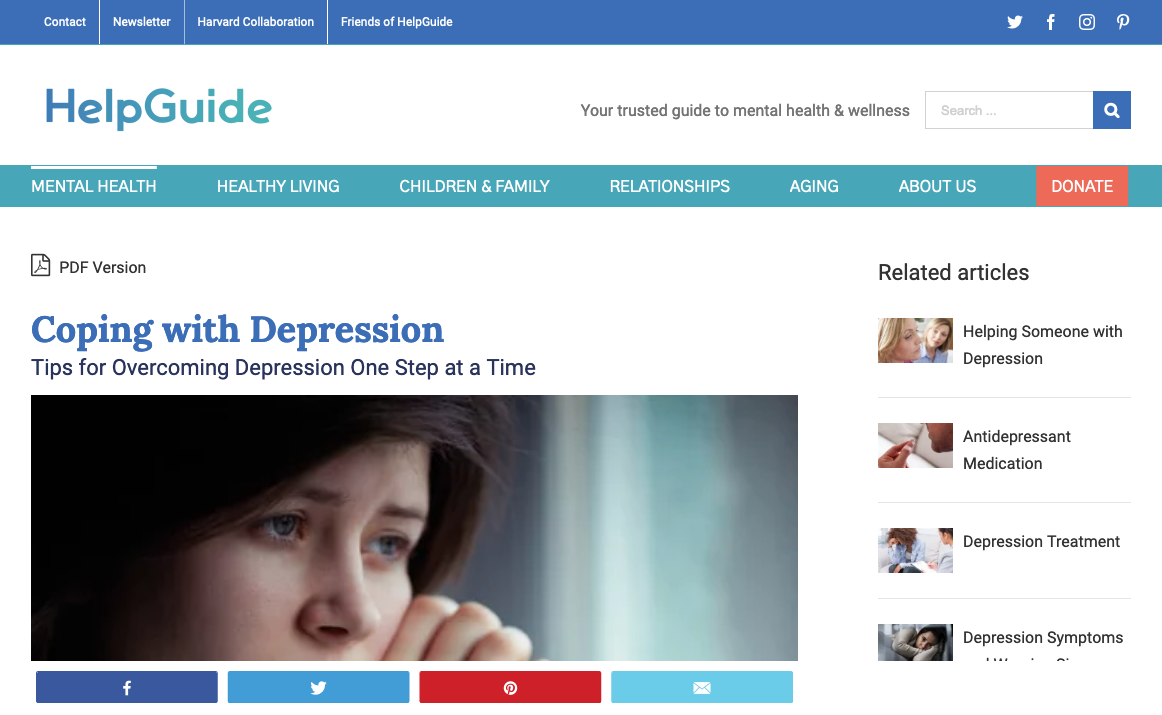Websites
The Child Mind Institute has created this exceptional video addressing how and when to talk to your kids about drugs and alcohol. Parents are generally pretty clear that the conversation must be had, but we can easily push it off out of fear, or because we really don’t have a clear script in mind and don’t know what to expect. Oftentimes, our parents did not have this conversation with us, and we have no role models in how to proceed. This video not only gives terrific talking points, but acknowledges how difficult it can be, and provides strategies for keeping the lines of communication open.
Some highlights from the (7 minute) video are:
Discover the immense benefits of CBT in treating ADHD and learn how the Coach Approach to parenting helps create personalized strategies for thriving with ADHD.
Leading ADHD experts answer questions about raising children with ADD with topics covering symptoms, school, work, and family life.
The nation’s leading source of important news, expert advice, and judgment-free understanding for people with ADD.
An ADHD toolbox—a mix of research-based strategies and lessons learned from a journey into ADHD adulthood.
Website, Blog, Podcast and Online Parent Support Groups hosted by Brendan Mahan, M.Ed., MS., an internationally recognized ADHD/Executive Function expert.
Listen for interventions, strategies, and tips for parents, teens, adults, educators, and professionals.
Features tools that help the user remain indistractable, articles on related issues, and links to Nir Eyal’s books and workshops.
A group of Pelham parents have organized around the topic of screens and social media for our youth.
Facilitates access to treatment for people with eating disorders.
TeenCentral is a website powered by KidsPeace as a free and safe prevention and intervention resource specifically for youth.
The Parent Support Network provides parents who are concerned about their children’s mental health with an opportunity to find and support each other in a confidential and safe space.
Want to become a happier, healthier you? This free program offers tools for managing stress and emotions, improving your relationships, and bringing your life into balance.
Provides information on common mental health disorders in adolescence, tips on identifying substance misuse, and steps to making informed decisions about evaluation and treatment for co-occurring disorders.
A primer on how to tackle substance abuse when you’re also dealing with depression, anxiety, or another mental health problem.
The National Eating Disorders Association's Marginalized Voices campaign, supported by Reasons Eating Disorder Center, is confronting the prevailing myths about who struggles with eating disorders.
Online courses that offer the opportunity to learn coping and holistic healing skills from licensed psychotherapists at an affordable price.
Dr. Stumacher, who visited Pelham last January to speak to parents and students about e-cigarettes and vaping, recommends this resource (This is Quitting from Truth Initiative) for young people who are trying to quit vaping.
Practicing mindfulness can benefit your health and well-being. Learn how you can build mindfulness into your everyday life.
For helpful tips on what to look for and what to ask when considering treatment options.
“The universal truth of puberty and adolescence is body change, and relatively rapid body change. “
We live in a picture perfect place; why are so many of our young people depressed?
Parenting a Depressed Teenager. Start by listening without judgment, not trying to 'fix' her.
Coping with Depression: Tips for Overcoming Depression One Step at a Time

![How And When Do I Talk With My Kids About Alcohol And Drugs [Child Mind Institute]](https://images.squarespace-cdn.com/content/v1/5be5a23629711449ca99504e/1720708813972-PFPAJPFZGCYUOCIU0GZF/chmind1.jpg)




























